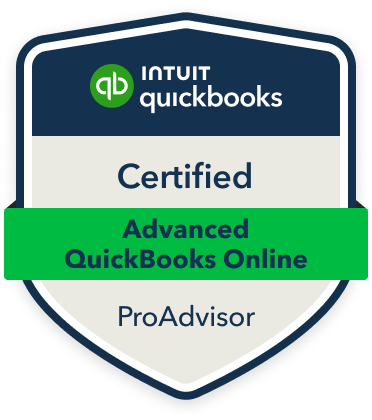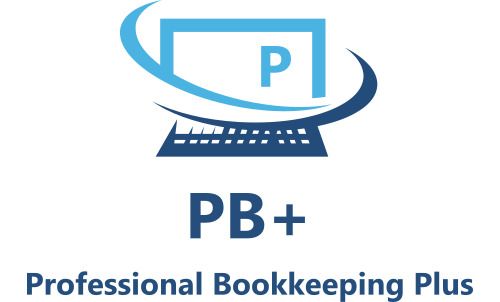IRS Provides Relief for Hurricane Helene Victims
Article Highlights:
- Hurricane Helene Affected States.
- Who Qualifies for Relief.
- Filing and Payment Relief
- Relief Start Dates.
- Relief Period Ending Date.
- IRS Address of Record
- Address Outside the Disaster Area
- Additional Tax Relief
- Qualified Disaster Relief Payments
The Internal Revenue Service has announced disaster tax relief for all individuals and businesses affected by Hurricane Helene, including the entire states of Alabama, Georgia, North Carolina and South Carolina and parts of Florida, Tennessee and Virginia.
Taxpayers in these areas now have until May 1, 2025, to file various federal individual and business tax returns and make tax payments. Among other things, this includes 2024 individual and business returns normally due during March and April 2025, 2023, individual and corporate returns with valid extensions and quarterly estimated tax payments.
The IRS is offering relief to any area designated by the Federal Emergency Management Agency (FEMA). Besides all of Alabama, Georgia, North Carolina and South Carolina, this currently includes 41 counties in Florida, eight counties in Tennessee and six counties and one city in Virginia.
Individuals and households that reside or have a business in any one of these localities qualify for tax relief. The same relief will be available to other states and localities that receive FEMA disaster declarations related to Hurricane Helene. The current list of eligible localities is always available on the Tax relief in disaster situations page on IRS.gov.
Filing and Payment Relief - The tax relief postpones various tax filing and payment deadlines that occurred beginning on:
- Sept. 22, 2024, in Alabama,
- Sept. 23 in Florida,
- Sept. 24 in Georgia,
- Sept. 25 in North Carolina, South Carolina and Virginia, and
- Sept. 26 in Tennessee.
In all these states, the relief period ends on May 1, 2025 (postponement period). As a result, affected individuals and businesses will have until May 1, 2025, to file returns and pay any taxes that were originally due during this period.
This means, for example, that the May 1, 2025, deadline will now apply to:
- Any individual or business that has a 2024 return normally due during March or April 2025.
- Any individual, business or tax-exempt organization that has a valid extension to file their 2023 federal return. The IRS noted, however, that payments on these returns are not eligible for the extra time because they were due last spring before the hurricane occurred.
- 2024 quarterly estimated income tax payments normally due on Jan. 15, 2025, and 2025 estimated tax payments normally due on April 15, 2025.
- Quarterly payroll and excise tax returns normally due on Oct. 31, 2024, and Jan. 31 and April 30, 2025.
In addition, the IRS is also providing penalty relief to businesses that make payroll and excise tax deposits. Relief periods vary by state. Visit the Around the Nation page for details.
The Disaster assistance and emergency relief for individuals and businesses page has details on other returns, payments and tax-related actions qualifying for relief during the postponement period. Among other things, this means that any of these areas that previously received relief following Tropical Storm Debby will now have those deadlines further postponed to May 1, 2025.
IRS Address of Record - The IRS automatically provides filing and penalty relief to any taxpayer with an IRS address of record located in the disaster area. These taxpayers do not need to contact the agency to get this relief.
Address Outside the Disaster Area - It is possible an affected taxpayer may not have an IRS address of record located in the disaster area, for example, because they moved to the disaster area after filing their return. In these unique circumstances, the affected taxpayer could receive a late filing or late payment penalty notice from the IRS for the postponement period. The taxpayer should call the number on the notice to have the penalty abated.
In addition, the IRS will work with any taxpayer who lives outside the disaster area but whose records necessary to meet a deadline occurring during the postponement period are in the affected area.
Taxpayers qualifying for relief who live outside the disaster area need to contact the IRS at 866-562-5227. This also includes workers assisting the relief activities who are affiliated with a recognized government or philanthropic organization. Disaster area tax preparers with clients located outside the disaster area can choose to use the Bulk Requests from Practitioners for Disaster Relief option, described on IRS.gov.
Additional Tax Relief - Individuals and businesses in a federally declared disaster area who suffered uninsured or unreimbursed disaster-related losses can choose to claim them on either the return for the year the loss occurred (in this instance, the 2024 return normally filed next year), or the return for the prior year (the 2023 return filed this year). Taxpayers have extra time - up to six months after the due date of the taxpayer's federal income tax return for the disaster year (without regard to any extension of time to file) - to make the election. For individual taxpayers, this means Oct. 15, 2025. Be sure to write the FEMA declaration number on any return claiming a loss.
Qualified Disaster Relief Payments - Are generally excluded from gross income. In general, this means that affected taxpayers can exclude from their gross income amounts received from a government agency for reasonable and necessary personal, family, living or funeral expenses, as well as for the repair or rehabilitation of their home, or for the repair or replacement of its contents. See Publication 525, Taxable and Nontaxable Income, for details.
Additional relief may be available to affected taxpayers who participate in a retirement plan or individual retirement arrangement (IRA). For example, a taxpayer may be eligible to take a special disaster distribution that would not be subject to the additional 10% early distribution tax and allows the taxpayer to spread the income over three years. Taxpayers may also be eligible to make a hardship withdrawal. Each plan or IRA has specific rules and guidance for their participants to follow. Contact this office for details.
The IRS may provide additional disaster relief in the future.
The tax relief is part of a coordinated federal response to the damage caused by this storm and is based on local damage assessments by FEMA. For information on disaster recovery, visit disasterassistance.gov.
For information on how this disaster relief might impact you or your business directly and assistance with your tax preparation needs, please contact this office.
CONTACT INFORMATION
Address: 10926 David Taylor Dr Suite 120 Charlotte, North Carolina 28262
Email: ljackson@jstaxandpbplus.com
Phone: 704-604-0862




BUSINESS HOURS
- Sun, Wed
- Closed
- Mon, Tue, Thu
- -
- Fri - Sat
- -












